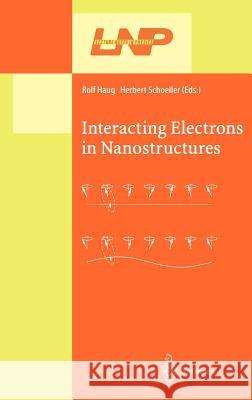Interacting Electrons in Nanostructures » książka
Interacting Electrons in Nanostructures
ISBN-13: 9783540422228 / Angielski / Twarda / 2001 / 230 str.
Nanostructures are among the most actively studied systems in present day - search. Theoretical and experimental studies of these small systems have unc- ered remarkable phenomena due to fundamental interactions and the reduction in dimensionality. Such nanostructures can be made out of well known ma- rials such as metals or semiconductors by lithographic procedures. In addition, novel material systems, e.g. semiconducting heterostructures, or even molecul- like materials, e.g. carbon nanotubes, can represent nanostructures in which electron electron interactions are of importance. The discoveries of quantum Hall e?ects o?ered an initial glimpse into the striking phenomena that may occur in these low-dimensional structures. - tensive research since then, made possible by enormous advances in fabrication technologies, have revealed a large class of unexpected behaviors in nanostr- tures. The rapid technological progress in the last two decades has led to great excitement among both applied and basic physicists. The hope that miniat- ization of such devices will lead to a new age of smaller and faster computers has motivated extensive work, trying to understand the basic physics involved, an imperative step towards any future application."











